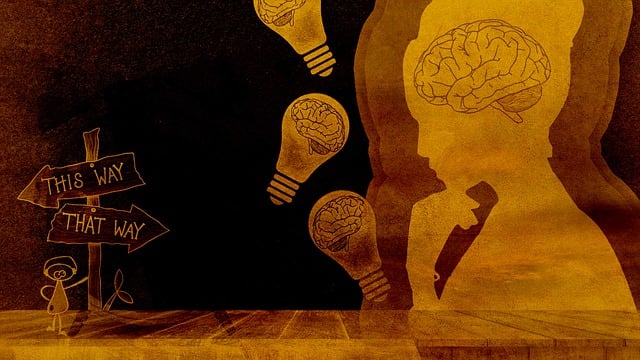Castle Rock Cancer Issues Therapy is a powerful approach to managing mental health impacts of cancer. It offers safe spaces through therapy for processing emotions, gaining insights, and developing effective coping mechanisms. This structured therapeutic intervention utilizes evidence-based practices like CBT and mindfulness to reduce stress, manage mood, and build resilience. By identifying personal coping mechanisms and adopting self-care routines, patients gain confidence in managing their healing process. This tailored support network helps cancer patients face challenges with a balanced outlook and renewed determination.
Cancer and its impact on mental health is a complex interplay that requires understanding and strategic coping skills. This article explores essential aspects of managing cancer’s emotional challenges, focusing on building resilience through therapy and identifying personal coping mechanisms. We delve into effective strategies for daily life and the critical role of support systems in fortifying individuals’ battles with Castle Rock cancer issues. By understanding these components, patients can navigate their journey with enhanced mental well-being.
- Understanding Cancer and Its Impact on Mental Health
- The Role of Therapy in Building Resilience
- Identifying Personal Coping Mechanisms
- Developing Effective Coping Strategies for Daily Life
- Support Systems: A Fortress During the Battle with Cancer
Understanding Cancer and Its Impact on Mental Health

Cancer can have a profound impact on an individual’s mental health and overall well-being, often leading to a range of complex emotions and challenges. When facing a Castle Rock cancer issue, individuals may experience anxiety, depression, fear, or even feelings of isolation. These emotional responses are completely normal and should not be overlooked; instead, they call for proactive coping strategies. Understanding the disease and its potential effects on mental health is the first step towards building resilience.
Therapy plays a pivotal role in helping patients navigate these uncharted territories. It provides a safe space to process emotions, gain insights, and develop effective coping mechanisms. Through Castle Rock cancer therapy, individuals can learn self-care routines designed to enhance mental wellness. This includes adopting healthy habits, practicing mindfulness, and engaging in activities that foster confidence boosting. By integrating these practices into daily life, patients can better manage stress, improve their outlook, and ultimately, cultivate a sense of empowerment during the healing process.
The Role of Therapy in Building Resilience

Therapy plays a pivotal role in building resilience, especially in navigating Castle Rock Cancer Issues. Beyond treating symptoms, therapeutic interventions equip individuals with coping skills essential for managing the emotional turmoil that often accompanies serious health challenges. Through structured sessions, therapy helps patients understand and process their feelings, fostering adaptability to unforeseen circumstances. This is particularly crucial for mental health professionals dealing with high-risk cases, where effective mood management and stress reduction methods are vital tools in a comprehensive treatment plan.
By incorporating evidence-based practices tailored to individual needs, therapists contribute to the patient’s overall well-being. These strategies may include cognitive behavioral therapy (CBT), mindfulness techniques, or group support, all aimed at bolstering resilience. A thorough risk assessment for mental health professionals guides the therapeutic approach, ensuring that interventions are not only effective but also safe and tailored to address specific psychological barriers that might arise in dealing with Castle Rock Cancer Issues.
Identifying Personal Coping Mechanisms

Identifying your personal coping mechanisms is a crucial step in navigating challenging life situations, especially when dealing with complex issues like cancer. Castle Rock Cancer Issues Therapy encourages individuals to explore and understand their unique strategies for managing stress and adversity. This process involves introspecting and recognizing patterns of behavior or mental processes that provide comfort and support during difficult times. By becoming aware of these coping mechanisms, one can harness their power and develop a personal toolkit for resilience building.
In therapy sessions, clients are guided to explore various aspects of their lives, emotions, and interactions with others. This exploration often reveals hidden strengths and resources, fostering a sense of empowerment. For instance, some individuals may discover that engaging in creative pursuits or spending time in nature offers a profound sense of calm and perspective. Others might find solace in social connections, adopting healthy communication strategies learned through Cultural Competency Training. Enhancing these coping skills can significantly contribute to overall well-being and confidence boosting during the healing process.
Developing Effective Coping Strategies for Daily Life

In the face of challenges, particularly when dealing with complex issues like cancer, developing effective coping strategies is paramount for maintaining mental health and overall well-being. Castle Rock Cancer Issues Therapy offers valuable resources to help individuals navigate this journey. Through therapy sessions, patients can learn and adopt various coping skills tailored to their unique experiences. These strategies empower them to manage stress, anxiety, and the emotional weight associated with cancer treatment and recovery.
One effective approach involves integrating Self-Care Practices into daily routines. This includes activities that promote relaxation, such as meditation, deep breathing exercises, and engaging in hobbies. Additionally, Trauma Support Services play a crucial role by providing safe spaces for individuals to process their experiences and build resilience. By combining these coping mechanisms with the guidance of professionals, patients can better manage their mental health and adapt to life’s changes, ensuring a more balanced and positive outlook despite facing Castle Rock Cancer Issues.
Support Systems: A Fortress During the Battle with Cancer

Cancer is a formidable battle that can leave individuals feeling isolated and overwhelmed. However, one of the most effective tools in coping with cancer is building a strong support system—a castle rock against the storm of stress and anxiety. This network can include family, friends, or even support groups where individuals share similar experiences. In these spaces, patients can find comfort, understanding, and practical advice on managing the emotional rollercoaster that often accompanies cancer issues.
The role of a supportive community goes beyond offering companionship; it equips individuals with essential coping skills. Organizations like Castle Rock Cancer Issues Therapy provide platforms for stress management workshops where people learn self-care practices and emotional healing processes tailored to their unique journeys. These initiatives not only empower patients but also foster resilience, enabling them to navigate the challenges of cancer treatment with renewed strength.
Coping skills development is a vital component in navigating the challenges posed by cancer. By understanding the disease’s impact on mental health, utilizing therapy as a tool for building resilience, identifying personal coping mechanisms, and implementing effective strategies for daily life, individuals can transform their journey with Castle Rock cancer issues. Building robust support systems acts as a fortress during this battle, providing strength and hope. Through these comprehensive approaches, one can find the resources needed to adapt, thrive, and ultimately, win the war against cancer.














